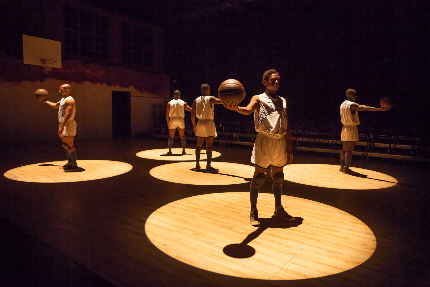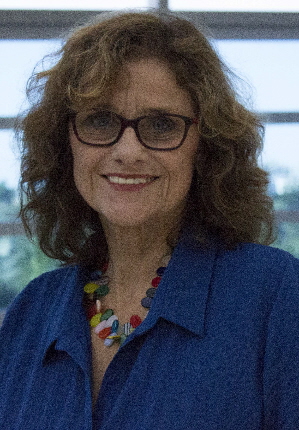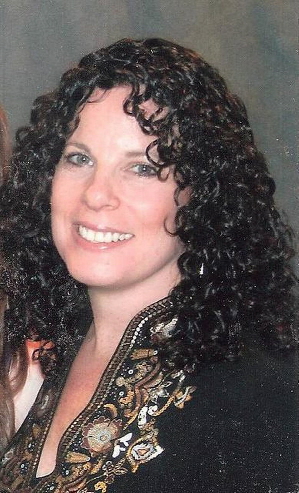
Marjory Stoneman Douglas high school students sing “Shine,” the song they wrote in the wake of the shooting tragedy
By Bill Hirschman
It was standing ovation like none other in the Amaturo Theater’s 26-year history.
An emotion-choked audience leapt to their feet during Monday’s 42nd annual Carbonell Awards ceremony, but it had nothing to do with the recognition of excellence in South Florida theater.
The sustained outburst was the response to seven Marjory Stoneman Douglas High School students standing on the stage singing “Shine,” the song that two of the students wrote in response to the Feb. 14 tragedy.
The anthem pledging resilience to turn sorrow into action soared into the theater with the voices of its composers Sawyer Garrity and Andrea Pena plus classmates Isabela Barry, Alex Moscou, Melanie Weber, Delaney Metcalf and Kali Clougherty.
Pena told the crowd, “We wrote this song during a really dark time in our lives when we both needed a little light and we thought the best thing was to do what we really love, which is music. This song is not only dedicated to the 17 victims…. It is dedicated to anyone who needs a light.”
A nearly-packed house applauded wildly, cheered and shouted their support with a passion equal to many of the announcements of award winners later that night.
The number was far from the only memorable aspect of the celebration that provides the region’s theatrical community an opportunity to dress up, renew acquaintances and bond in what they have dubbed “Theater Prom.”
The most noticeable aspect was what may be an unprecedented number of wins in a single year for shows produced by African American theaters and employing African American artists – seven out of the 20 Carbonell categories.
The most high-profile winner was The Kings of Harlem, a play documenting champions of segregated baseball leagues from the 1920s to the 1940s. It was an especially sweet moment for the producing theater, M Ensemble, reportedly the oldest continually operating African-American company in existence in the state.
The company has been nominated before, but this marked the first time its founders Shirley Richardson and Patricia Williams had gone home with wins for their work, although previously they had received the prestigious George Abbot Award. With five wins, M Ensemble took home the second most number of awards of any theater.
The 47-year-old troupe has struggled in recent years, economically and artistically, as it moved from venue to venue across Miami-Dade County. But it finally settled last year into a permanent home in the new Sandrell Rivers Theatre in north Miami, opening it with Kings.

M Ensemble’s The Kings of Harlem,
By the end of the evening, Kings had garnered Best Production of a Play; Best Director/Play for Layon Gray, who created the work and had mounted it elsewhere; Best Supporting Actor/Play for veteran Florida actor Andre L. Gainey as the oldest member of the team, and Best Ensemble for the Florida cast.
Co-founder Shirley Richardson told the crowd, “I am shocked because I knew we were took a risk with this show.” The project was more expensive than usual including turning their new home venue into a basketball court.

Elijah Word in Dreamgirls
Other African-Americans taking home awards included Elijah Word, the singer-actor-dancer whose electrifying James Thunder Early in Broward Stage Door’s Dreamgirls earned him the Best Supporting Actor/ Musical statue; and Best Supporting Actress/Play went to the venerable Florida actress Carolyn Johnson as the homesteading matriarch in M Ensemble’s Flyin’ West.
But the cheers rose and fell like the sea as Sarah Gracel, who made her first professional performance as the tempestuous Effie in Dreamgirls, claimed the Best Actress/ Musical award. She ended her ebullient speech trumpeting the closing lines of “You’re gonna love me” from her big solo “And I’m Telling You I’m Not Going.”
As always, major powerhouses scored heavily in very tight competitions, especially in the musicals category which pitted two Stephen Sondheim shows Zoetic Stage’s Sunday in the Park With George against Palm Beach Dramaworks’ Sweeney Todd, plus Maltz Jupiter Theatre’s kinetic Newsies and its reinvention of Gypsy and The Wick Theatre’s The Drowsy Chaperone.
But Sunday triumphed with Best Production of a Musical, Best Costume Design for Angelina Esposito, and Musical Direction for Eric Alsford. Dramaworks’ Sweeney gathered recognition for Best Actor for Shane Tanner as the titular murderous barber, and Best Director to Clive Cholerton for his steampunk vision. Al Blackstone was recognized for his explosively exuberant choreography for Newsies. Slow Burn Theatre company’s Thomas Shorrock won the Best Lighting award for his deft delicate work on The Secret Garden.

Stuart Meltzer
Zoetic’s co-founder and resident director Stuart Meltzer was the playwright behind the winner of Best New Work, The Goldberg Variations, produced by Island City Stage and directed by Andy Rogow.
The work at smaller theaters also won nods. The Best Actress/Play category was won by Niki Fridh who played a female military pilot forced to fly drones in Grounded, at Thinking Cap Theatre in Fort Lauderdale. In fact, some of the usual winners GableStage and Actors’ Playhouse were shut out.

Michael McClain’s winning set design for The Caretaker at Zoetic
Still, Zoetic, the resident company at the Adrienne Arsht Center, was the company needing the largest trunk to take home its awards. Besides the wins for Sunday, it hosted the David Kwiat who won Best Actor/Play as the garrulous and scruffy homeless man in The Caretaker; plus Best Scenic Design for Michael McClain’s towering piles of detritus in the attic of the same play; and Best Sound Design to Anton Church for the extensive complex soundscape accompanying ¡FUÁCATA!, Or a Latina’s Guide to the Universe.
Other notable wins included newcomer Mallory Newbrough whose portrayal of Janis Joplin in The Wick Theatre’s Beehive won her the Best Supporting Actress/Musical and made judges aware of her in several subsequent roles in the past year. She had also been nominated as Belle in The Wick’s Beauty and the Beast.
Some observers have wondered if plays opening early in the calendar year get short shrift when nominators sift through 98 eligible plays and judges see more than 70. But both Kings of Harlem and Sunday in the Park with George opened in January 2017 and the final rounds of voting occurred last month.
While controversy has rarely been mentioned in past ceremonies, this year the Parkland tragedy, gay rights, women’s equity in the arts, and especially legislative cuts to arts funding programs were referenced directly or indirectly.
Carbonell President Jody Leshinsky pointedly detailed how the Florida Legislature had cut funding for the arts this session from $25 million to $2.5 million, slicing per person spending from $1.45 per citizen to 13 cents. She urged artists and patrons to find ways to change attitudes in Tallahassee.
Director-educator Gail Garrisan, who received the George Abbot Award on Monday, noted that things had changed during her career. She said that when she started in the region decades ago, if she had publicly acknowledged that she was gay by mentioning her partner as she did Monday night, she wouldn’t have had a job the next morning.
Nicole Stodard, the founder of Thinking Cap Theatre and winner of the Ruth Foreman Award, detailed her development as a feminist theater artist and the need for more attention to those issues. “This one’s for the ladies in the house,” she said.
Cholerton in accepting the award for Sweeney Todd noted that he lived close to Parkland and said the story he had hoped to tell was how “each and everyone of us” have to take some responsibility “for putting razors in the hands” of murderers and to say “Never again. Enough is enough.”
Elijah Word, accepting his statue, said, “I want to quote the words on the steps of my high school Marjory Stoneman Douglas: ‘Be the change you want to see in the world.’ ”
New Wrinkles
The “Shine” performance was only one of several new elements in an evening molded by Kevin Black, the producer-director-choreographer and creator of several musical revues who was helming the ceremony for the first time.
They included an upbeat memorial to local theater figures who died in the previous year, including musical director and educator Michael Larsen, critic Skip Sheffield, Caldwell Theatre founder Michael Hall, music director Vic Glazer and bassist Scott Hadsell. In their honor, four musical directors Caryl Fantel, Paul Reekie, David Nagy and Michael Ursua simultaneously played at a single piano picking out a medley of songs that the lost talents had loved, such as “I Love A Piano” – with Reekie continuing to finger the keyboard while under the instrument.
To give more attention to Best Plays nominees, the ceremony featured short filmed interviews with the directors of the plays as well as videos from some of the musicals.
The evening opened cold with video greetings from young stars of Rise, the new television series about high school students producing Spring Awakening in the face of local opposition.
That was followed by a rousing mashup of “This Is Me” from the musical film The Greatest Showman and “You Will Be Found” from the Broadway hit Dear Evan Hansen. Fantel led the singers Shelley Keelor, Kat Gold, Clay Cartland and Elijah Word, interspersed with dancing by Vickie Joleen Anderson, Austin Carroll, Joshua Conner, Jonathan Eisele, Natalie McPherson, Brian Varela, and Kelly Ziegler and choreographed by Emily Tarallo, plus spoken quotes about the importance of theater from Rita Joe, Kevin Reilley, Niki Fridh and Tom Wahl.
Two performances were drawn from among the best musical contenders:
— “As We Stumble Along” from the Wick’s The Drowsy Chaperone, led by Laura Hodos and backed by Brianna Barnes, Alex Frost, Jeanine Gangloff Levy, Bruce Linser, Angie Radosh, Barry Tarallo and Arrow Zurschmiede.
— “Move On” from Zoetic Stage’s Sunday In The Park With George with its two leads Kimberly Doreen Burns and Cooper Grodin.
The musical numbers were accompanied by a band led by Fantel with Rupert Ziawinski and Roy Fantel
Special Awards
The evening encompassed the presentation of four of the organization’s five most esteemed awards.
 Garrisan, the founding artistic director of City Theatre’s Summer Shorts festival, and a director and teacher, received the George Abbott Award for Outstanding Achievement in the Arts, awarded for significant contribution to the artistic and cultural development of the region. Since beginning her South Florida career in the early 1990s, Garrisan has taught future artists at Miami’s New World School of the Arts, the Broward Center for the Performing Arts, Blue Dog School for Acting, Florida Atlantic University, Broward College, the Coconut Grove Playhouse, the Burt Reynolds Institute for Theatre Training, the Caldwell Theatre Company and among other programs as well as serving as a private coach. For more than 20 years, Garrisan has directed productions at major theaters in the tri-county area.
Garrisan, the founding artistic director of City Theatre’s Summer Shorts festival, and a director and teacher, received the George Abbott Award for Outstanding Achievement in the Arts, awarded for significant contribution to the artistic and cultural development of the region. Since beginning her South Florida career in the early 1990s, Garrisan has taught future artists at Miami’s New World School of the Arts, the Broward Center for the Performing Arts, Blue Dog School for Acting, Florida Atlantic University, Broward College, the Coconut Grove Playhouse, the Burt Reynolds Institute for Theatre Training, the Caldwell Theatre Company and among other programs as well as serving as a private coach. For more than 20 years, Garrisan has directed productions at major theaters in the tri-county area.
 Tony Finstrom, playwright and generous patron to many theaters and arts causes, received the Charlie Cinnamon Award, created last year to honor an individual who not only contributes significantly to the support of the arts in South Florida, but also for dedicated service to the Carbonell Awards organization. It was named for legendary press agent Charlie Cinnamon, who passed away in 2016. Finstrom, who spearheads the Jan McArt play development program at Lynn University, has worked with the Carbonells in various capacities for nearly two decades. Through an Internet mailing list, he also circulates scores and scores of news items about local theater and theater across the country.
Tony Finstrom, playwright and generous patron to many theaters and arts causes, received the Charlie Cinnamon Award, created last year to honor an individual who not only contributes significantly to the support of the arts in South Florida, but also for dedicated service to the Carbonell Awards organization. It was named for legendary press agent Charlie Cinnamon, who passed away in 2016. Finstrom, who spearheads the Jan McArt play development program at Lynn University, has worked with the Carbonells in various capacities for nearly two decades. Through an Internet mailing list, he also circulates scores and scores of news items about local theater and theater across the country.
 Deborah Margol, a tireless champion for all of the arts in the region, received the Howard Kleinberg Award, a special recognition for contributions to the health and development of the arts. Until her retirement in February, Margol was Deputy Director of the Miami-Dade County Department of Cultural Affairs and served the cultural community for more than 32 years. Along with Michael Spring, director of the Miami-Dade County Department of Cultural Affairs, she built the department into one of the most supportive such operations in the United States by a county – both fiscally and with advice. Spring said she was “directly responsible for the department’s growth and success over three decades, and distinguished herself through her passion for the arts and insightful, creative and strategic contributions to both the department and the arts community.”
Deborah Margol, a tireless champion for all of the arts in the region, received the Howard Kleinberg Award, a special recognition for contributions to the health and development of the arts. Until her retirement in February, Margol was Deputy Director of the Miami-Dade County Department of Cultural Affairs and served the cultural community for more than 32 years. Along with Michael Spring, director of the Miami-Dade County Department of Cultural Affairs, she built the department into one of the most supportive such operations in the United States by a county – both fiscally and with advice. Spring said she was “directly responsible for the department’s growth and success over three decades, and distinguished herself through her passion for the arts and insightful, creative and strategic contributions to both the department and the arts community.”
 Stodard, founder of Thinking Cap Theatre and the Vanguard Sanctuary for the Arts, received the Ruth Foreman Award recognizing contributions to South Florida theater development for singular achievement and/or career contributions. Stodard was honored for the GAP Play Reading Series. Stodard has an academic and social interest in gender and feminism, especially as it pertains to theater and the arts in general. Looking over the decades of Pulitzer Prize winners, Stodard realized that only 12 of the winning plays had been written by women. She began a year-long program of play readings, one each month, of the 12 plays written by women, beginning with Zona Gale’s Miss Lulu Bett from 1920. Through the play readings and the talkbacks after, Stodard, her actors, directors and audience explored the subject of gender bias, as well as the gap of progress of women in general in society.
Stodard, founder of Thinking Cap Theatre and the Vanguard Sanctuary for the Arts, received the Ruth Foreman Award recognizing contributions to South Florida theater development for singular achievement and/or career contributions. Stodard was honored for the GAP Play Reading Series. Stodard has an academic and social interest in gender and feminism, especially as it pertains to theater and the arts in general. Looking over the decades of Pulitzer Prize winners, Stodard realized that only 12 of the winning plays had been written by women. She began a year-long program of play readings, one each month, of the 12 plays written by women, beginning with Zona Gale’s Miss Lulu Bett from 1920. Through the play readings and the talkbacks after, Stodard, her actors, directors and audience explored the subject of gender bias, as well as the gap of progress of women in general in society.
The Bill von Mauer Award, given only four times in 12 years to a theater company that exemplifies excellence for the totality of its programming, was not given out this year.
Engendering the Future
Besides encouraging excellence in local theater, the Carbonells is dedicated to developing young talent. Toward that end, the organization gives out scholarships to high school seniors pursuing degrees in the performing arts and journalism.
In 1978, the first $500 scholarship was awarded, and more than $100,000 in scholarships have been awarded since, recently renamed the Jack Zink Memorial Carbonell Scholarships, in honor of the late Sun-Sentinel critic who co-founded and led the Carbonells until his death. Each year, three candidates are selected through a competitive, merit-based process with one student selected from each county in the South Florida region.
This year, Cypress Bay High School senior Rachel Schonberger, who will pursue her passion for writing and the arts at Northwestern University’s Medill School of Journalism, will receive a $3,000 scholarship.
Brooke Rosenbluth, who attends New World School of the Arts in Miami, will receive a $2,000 scholarship to pursue an education in theater.
Adam Benjamin, a senior at Boynton Beach High School, will receive a $1,000 scholarship to pursue his studies in theater and math at Case Western Reserve University in Cleveland.
42 Years of Excellence
The Carbonell Awards is a not-for-profit organization and is funded by tax-deductible donations and award sponsorships. This season’s sponsors include season’s sponsors include South Florida Cultural Consortium, the Adrienne Arsht Center for the Performing Arts of Miami-Dade County, the Broward Center for the Performing Arts, Kravis Center for the Performing Arts, Rita and Jerry Cohen, Kerry and Scott Shiller, South Miami-Dade Cultural Arts Center, Mary Ellen and Michael Peyton, Tony Finstrom the Palm Beach Cultural Council and the South Florida Theatre League.
The awards were created in 1976 by the South Florida Entertainment Writers’ Association, Inc. (later called the South Florida Critics Circle) led by the late Jack Zink of the Sun Sentinel, and the late Bill von Maurer of the Miami News.
The First Annual Theatre Circle Awards held its ceremony November 15, 1976, drawing about 175 people to the Diplomat Hotel Regency Ballroom. The plays and musical categories were combined and any Equity production was eligible including national tours and road shows. In fact, all of the nominees that first year were connected to producer Zev Buffman’s touring productions with winners including Angela Lansbury in Mame at the Parker Playhouse.
Numerous changes occurred over time: A “musical variety” category was added, then dropped. Plays and musicals were put in separate categories, the Equity requirement was dropped, national tours were put in a separate category and eventually dropped all together.
In 1978, the program was renamed, retroactively, the Carbonell Awards in recognition of the late Manuel Carbonell, the Cuban-born Miami-based sculptor who donated the bronze gold-colored scooped-out eggs to every winner. Other than one year, his family has continued the practice.
A major change occurred in September 2002 when the critics stepped away as the corporate heads of the Carbonells and the newly-titled Carbonell Awards Inc. Critics continued to be involved as judges and administrators, but control of the non-profit corporation was ceded to a board of directors comprising theater champions in the community, representatives of cultural agencies in all three counties and from all three major presenting houses. Currently, at least four houses represented on the board rent space to the Carbonell competing theaters and three of those are fiscal co-producers. But board members do not vote on nominations and recipients, only on policies, qualifications and procedures.
The reason for the change was that the effort had grown too large to be staffed by volunteers and the number of critics had already begun to shrink to too small a pool. Zink continued as executive director and administrator until his death in 2008. The late local producer Jay Harris had been donating heavily, but now the program sought out corporate and private donors. Harris and publicist Savannah Whaley were deeply involved in significant subsequent efforts to smooth out a logistically challenging transition.
The awards have not been without controversy. The highest-profile furor occurred in November 2008 when the board contemplated not holding the 2009 ceremony. The reasons given were the high price of gasoline, Zink’s death, the declining number of critics and a falloff in donations due to the recession. The decision was reversed after an outcry from the theatrical community.
The tenor of the ceremony has changed as well. For several years, the emcee was a national celebrity and the event attracted bold-face names. The board has discussed for decades how to bring more theater patrons and devotees to the ceremony. But in recent years, the local theatrical community has pressed for the evening to be an insider’s celebration of local theater.
The awards have a decidedly mixed relationship with the theater community. Many revere the honor. It’s cited in resumes and Broadway playbill bios. Theater companies frequently list their total wins in news releases, promotional materials and grant applications. The Maltz Jupiter Theatre displays its statuettes in a glass case in the lobby.
But some resent the awards for making artists competitive, some question the validity of comparing wildly different productions and performances, and some believe the selection reflects prejudices, grudges and hidebound mainstream attitudes of nominators and judges. (Full disclosure: Since 1998, I have been a nominator, assistant administrator and am currently a judge.)
While established and well-funded theaters like Actors’ Playhouse, GableStage and the Maltz tend to do well, the Carbonells have also been a boost to small fledgling companies that have later developed into significant forces such as Slow Burn Theatre Company and Island City Stage.
Off Stage
The recommendation panelists, who decided which of 98 shows were seen by the judges, included: Al Alschuler, Kay Brady, Thomas J. Bruckner, Nancy Doyle Cohen, Sean Cutler, Mark Demeter, Alvin Entin, Janet Erlick, Robert Holtzman, Donna Horkey, David Jobin, Mark Keller, Jill Kratish, Lynn Kobrin, Myrna Loman, Matt May, Teri Solomon Mitze, Ileana Oroza, Karen Poindexter, Tom Regnier, Jennifer Sierra-Grobbelaar, John Chase Soliday, Joyce Sweeney, Terrie Temkin, Tony Walsh and Michael Yawney.
The judging panel this past season, whose members spend between 275 and 350 hours a year in their posts seeing shows, was Mary Damiano, editor, critic, administrative assistant at Florida Children’s Theatre and the Carbonell’s managing director; Christine Dolen, veteran theater critic for The Miami Herald and now Artsburst.com; Cheryl Dunn Bychek, an actress and former public relations and marketing expert; Hap Erstein, longtime critic for several Palm Beach area outlets; Tony Finstrom, playwright and arts supporter; Bill Hirschman, founder, editor, and chief critic of Florida Theater On Stage; Paul Levine, columnist for Around Town newspaper and president of Famous Faces Entertainment and Special Events Company; Michael Peyton, creator of Cultural Connection; John Thomason, critic and editor; and Betsy Weisman, accounting manager of the Broward Performing Arts Foundation, Inc.; educator and former actress Andrea O’Connell; R. Kent Chambers-Wilson, who has been an assistant director, stage manager, sound designer/technician, dramaturg, script doctor, actor and theater reviewer.
The current Carbonell Board of Directors includes its president, Jody Leshinsky, Cultural Executive Director, Bailey Contemporary Arts & Historic Ali Cultural Arts, Pompano Beach; Donald R. Walters, Esq., attorney; Jan Goodheart, Vice President of External Affairs, Broward Center for the Performing Arts; Linda Birdsey, Marketing Director, Raymond F. Kravis Center for the Performing Arts; Eric B. Fliss, Managing Director, South Miami-Dade Cultural Arts Center, Miami; Ricardo J. Gonzalez III, Director, Beaux Arts Gallery, representing the Manuel Carbonell family; Leslie Fordham, Public Art & Design Administrator, Broward Cultural Division – Fort Lauderdale; Jennifer Sullivan, Director of Marketing, Cultural Council of Palm Beach County; Javier Siut, Assistant Theater Director Miami-Dade County Auditorium, and Joanne Matsuura Benkö, Marketing Director, Adrienne Arsht Center for the Performing Arts.







 A PaperStreet Web Design
A PaperStreet Web Design
